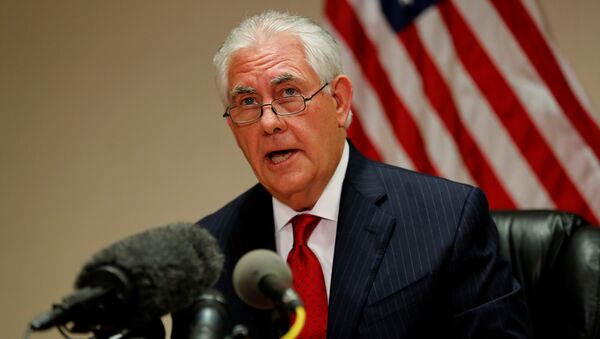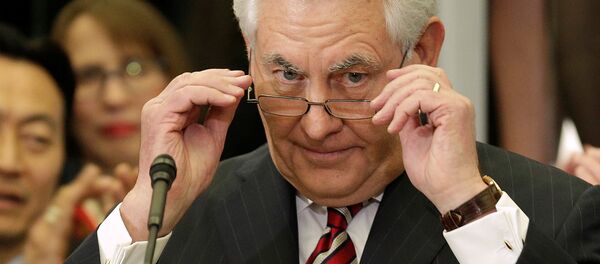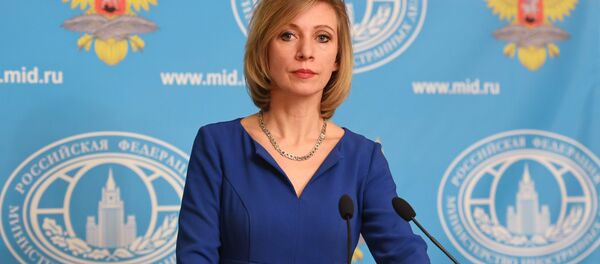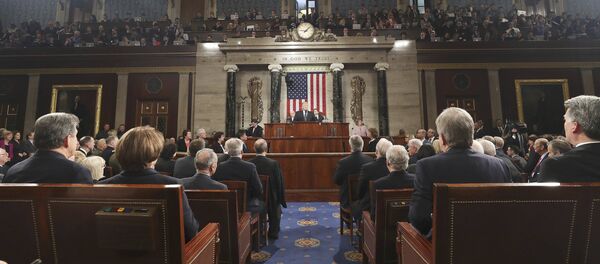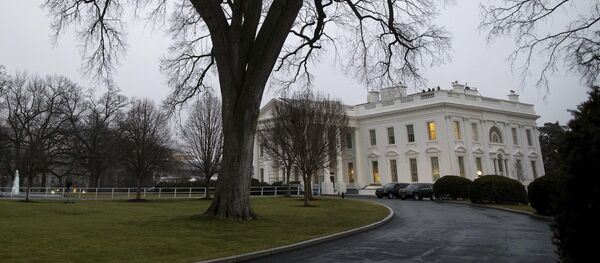On Monday John Hudson of BuzzFeed reported that the media outlet had obtained a document supposedly crafted by Tillerson which envisioned three major steps to further develop Russo-American relations.
The first step was to persuade Moscow to refrain from what the US sees as "aggressive" actions since it will be counterproductive for both sides. The second paragraph envisaged engagement with Russia on issues of strategic interest for the United States, including the ongoing war in Syria, North Korea's nuclear weapons program, cybersecurity and cyber espionage.
The third paragraph of Tillerson's plan highlighted the importance of maintaining "strategic stability" with Russia.
"Right now, US-Russia relations are in the gutter. We want to make sure it doesn't flush into the sewer," a senior State Department official familiar with the document told the media outlet.
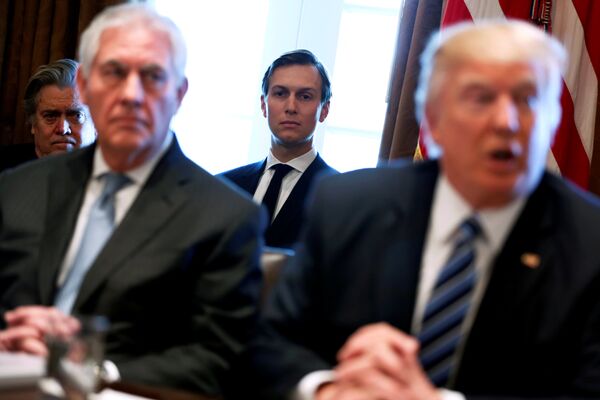
In his interview with Radio Sputnik, Russian political analyst Viktor Olevich noted that the third paragraph of Tillerson's framework deserves special attention.
"This plan contains no original ideas. One should pay attention to the third point — the maintenance of strategic stability related to the nuclear programs of Russia and the United States; it is the most significant [part of the plan]. This is indeed the point of convergence, where both Moscow and Washington are interested in maintaining a constant dialogue," Olevich said.
"This issue should become part of the dialogue between Moscow and Washington, because right now the US refuses to discuss it," Olevich said, adding that one could only hope that the US position regarding these matters will change.
However, according to Olevich, as of yet there is no indication that Washington is interested in the normalization of Russo-American relations.
For instance, he referred to the downing of the Syrian Arab Army's warplane in southern Raqqa by the US-led coalition's aircraft.
The move prompted the Russian Defense Ministry to halt cooperation with the US within the framework of the Memorandum on the Prevention of Incidents and Ensuring Air Safety in Syria as of June 19.
Olevich added that the White House has yet to hand back two diplomatic compounds which were seized from Russia under Barack Obama. One is on Long Island and the other is located on Maryland's Eastern Shore. The fact that the Trump administration has not yet settled this issue indicates that the US is not ready for the normalization of relations or a serious dialogue with Russia, the political analyst stressed.
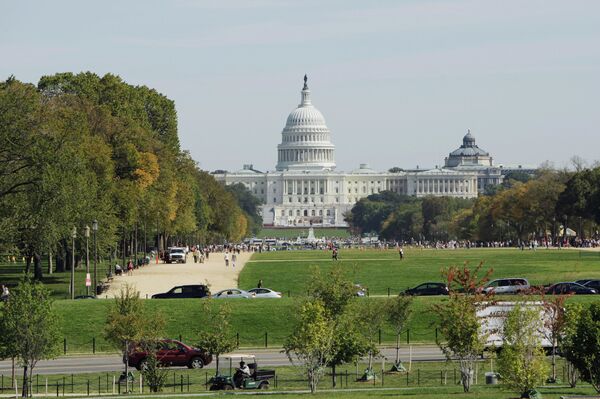
For his part, the head of the Department of International Organizations and World Political Processes at Moscow State University, Andrei Sidorov, believes that the leak of the "secret plan" could be considered a signal to Congress that the White House is seeking room for maneuver.
Citing Rep. Kevin Brady (R-Texas), The Hill reported that "the legislation has been flagged" by the House parliamentarian since it violated the constitutional requirement that "revenue bills originate in the House."
"The development marks a major setback after the Senate overwhelmingly passed the legislation, which also includes new sanctions against Iran, last week in a 98-2 vote," the media outlet pointed out.
The crux of the matter is that the bill envisions codifying the anti-Russian sanctions into law.
"By now [the anti-Russian sanctions] have been implemented as an executive order which could be canceled anytime by the US president. If they are adopted as a federal law, it would require Congressional approval to abolish them. These sanctions could remain in place for decades," Russian academic Viktor Kheifets explained in his interview with Radio Sputnik last week.
According to Zero Hedge, an English-language financial blog, "if the House does pass [the bill], a huge diplomatic scandal would erupt only not between the US and Russia, but Washington and its European allies who have slammed this latest intervention by the US in European affairs… a scandal which the Democrats would also promptly blame on Trump."
Indeed, Germany and Austria have already slammed the new anti-Russian sanctions, dubbing the US move as "an absolutely new and highly negative aspect of relations between the US and Europe."
According to Sidorov, if the bill comes into force, it will significantly reduce the room for maneuver for the Trump administration in US-Russian relations and decision-making process.
"This is a good sign for the [Trump] administration that the process [of the consideration of the bill] was suspended in the House of Representatives, but the main task of combating this bill lies with the State Department," Sidorov told Sputnik.
"Please note that some officials from the administration have already said that US President Donald Trump is not against the tightening of anti-Russian sanctions, but the State Department objects because it is necessary to build new relations. Therefore, the leak that the document [Tillerson's plan] envisioning building new relations with the Russian Federation is being mulled [by the White House] refers to the internal political struggle within the US," the Russian academic believes.
According to Sidorov, the document has sent a clear signal to Congress that the State Department is working on the issue of building new relations with Russia. What the Trump administration desperately needs is leeway in determining foreign policy, the academic stressed.
